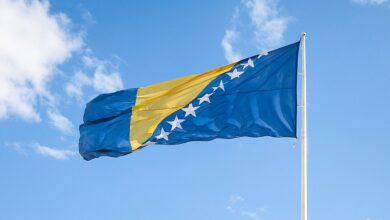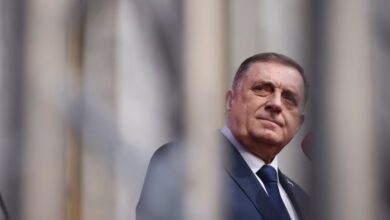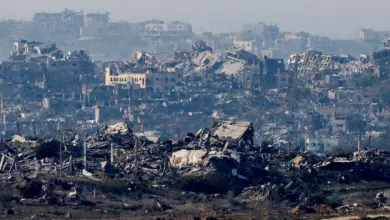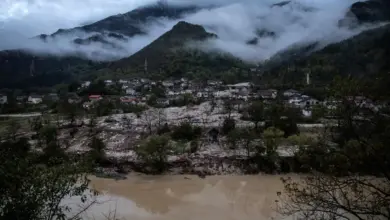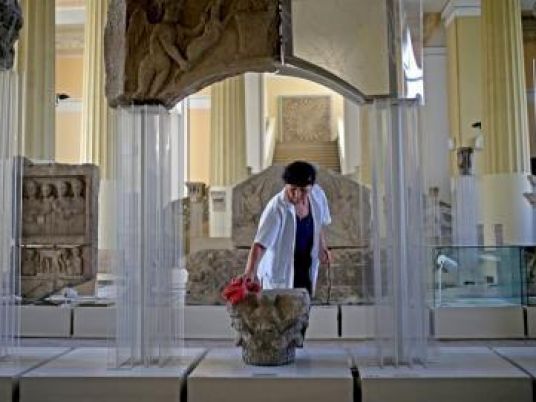
Bosnia's National Museum, a custodian of culture for a region torn by ethnic divisions, re-opened on Tuesday after a three-year closure, displaying treasures including a medieval Jewish book of Passover rites.
After Bosnia's divided authorities finally agreed on a way to finance the landmark Sarajevo institution, school children and citizens filled the chambers and garden that had been closed in 2012 for lack of funding.
Its status has remained unresolved for years after the 1992-95 war that split Bosnia into two ethnically-based regions.
"It's so nice that the museum re-opened," said Abdulah Sarajlic, a Sarajevo high-school student. "I was so displeased when they closed it."
Under public pressure, the authorities from different layers of Bosnia's complex government on Tuesday signed a deal pledging financing for the museum and six other national cultural institutions based in the Bosnian capital.
The autonomous Serb Republic refused to take part, saying these institutions were not in its territory.
"The National Museum is the national treasury of all citizens of Bosnia-Herzegovina," Bosnia's Prime Minister Denis Zvizdic said, promising to work towards finding regular funding for all seven institutions.
The funds that were pledged can cover the museum's financing needs for one year, said museum director Adnan Busuladzic, who surprised everyone when he handed in his resignation saying that with the re-opening of the museum he has completed his duty.
"My resignation is not the result of negative but positive feelings and intentions," Busuladzic told reporters after the ceremony. "I stayed with museum workers until the end."
The museum complex, with its 4 million artifacts in departments of archaeology, ethnology, natural sciences and a rich library which includes the Sarajevo Haggadah, the 14th century Jewish book of Passover rites, is the largest such institution in the region.
It had outlived the collapse of the Austro-Hungarian empire, two world wars and the break-up of Yugoslavia but has barely survived Bosnia's post-war system based on ethnic quotas.
The US Embassy in Sarajevo on Tuesday pledged 1.1 million Bosnian marka (US$637,000) for the museum's renovation, and committed to bring US experts to help its management.
A civic action "I am the Museum" has drawn about 3,000 people to the museum over the past six weeks to guard its heritage along with museum workers.
"The biggest success was that we handed the museum over to the citizens from politicians," said Aida Kalender, who started the civic initiative.
(US1$=1.727 Bosnian marka)

